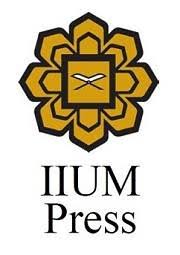Practical Demonstration: A Method for Generating Behavioural Evidence to Study Memorisation of the Holy Qurʾān
DOI:
https://doi.org/10.31436/alburhn.v6i2.251Keywords:
Practical demonstration, Qurʾanic memorisation, mental imagery, retrieval structure, long-term working memoryAbstract
Practical Demonstration evolved as a method of data collection for investigating the memorisation of the Holy Qurʾān and its attendant learning processes. Its objective was to generate data that must be authentic, have ecological validity and be empirical, and at the same time be replicable and have conceptual clarity. It is a structured interaction between the researcher and the subject about a particular aspect of the memorisation process that has been automatized, is beyond conscious awareness and taken for granted by the subjects. Trying to elicit information about such a phenomenon through questioning gave imprecise answers, especially in the case of children. So, the researcher asked the subjects to ‘show her’ rather than ‘tell her’. Practical demonstrations were used extensively both during the participant observation and semi-structured interviews. They yielded rich evidence on certain aspects of the memorisation process such as multi-modal learning including visual imagery of a particular page; coordination of the articulatory system and the phonological loop during initial stages of memorisation; development of metamemory and its role in learning and memorising; error-monitoring, detection, and rectification; types of errors; and developing a system of retrieval cues and retrieval structure.
Downloads
References
Baddeley, Alan. ‘Working Memory: Theories, Models, and Controversies’. Annual Review of Psychology 63 (2012): 1–29. https://doi.org/10.1146/ANNUREV-PSYCH-120710-100422.
Charmaz, Kathy. Contrusting Grounded Theory: A Practical Guide Through Qualitative Analysis. London: Sage Publications, 2014.
Chase, William G., and K. Anders Ericsson. ‘Skill and Working Memory - Technical Report No. 7’. In The Psychology of Learning and Motivation - Advances in Research and Theory, edited by G.W. Bower, 16:1–58. Academic Press, 1982. https://doi.org/10.1016/S0079-7421(08)60546-0.
Cohen, Deborah, and Benjamin Crabtree. ‘Qualitative Research Guidelines Project’. Robert Wood Johnson Foundation, 2006. http://www.qualres.org/HomeAbou-3452.html.
Ericsson, K. Anders, and Walter Kintsch. ‘Long-Term Working Memory.’ Psychological Review 102, no. 2 (1995): 211–45. https://doi.org/10.1037/0033-295X.102.2.211.
Ericsson, K. Anders, Ralf Th Krampe, and Clemens Tesch-Römer. ‘The Role of Deliberate Practice in the Acquisition of Expert Performance’. Psychological Review 100, no. 3 (1993): 363–406. https://doi.org/10.1037/0033-295X.100.3.363.
Ericsson, K. Anders, and Andreas C. Lehmann. ‘Expert and Exceptional Performance: Evidence of Maximal Adaptation to Task Constraints’. Annual Review of Psychology 47 (1996): 273–305. https://doi.org/10.1146/ANNUREV.PSYCH.47.1.273.
Flick, Uwe. An Introduction to Qualitative Research. London: Sage Publications, 2006.
Guida, Alessandro, and Magali Lavielle-Guida. ‘2011 Space Odyssey: Spatialization as a Mechanism to Code Order Allows a Close Encounter between Memory Expertise and Classic Immediate Memory Studies’. Frontiers in Psychology, 7 June 2014, 573. https://doi.org/10.3389/FPSYG.2014.00573.
Guskey, Thomas R. ‘Lessons of Mastery Learning’. Educational, School, and Counseling Psychology Faculty Publications 14 (2010).
Karasz, Alison. ‘Qualitative and Mixed Methods Research in Cross-Cultural Psychology’. In Fundamental Questions in Cross-Cultural Psychology, edited by F.J.R. Van De Vijyer, A. Chasiotis, and S.M. Breugelmans, 214–34. Cambridge: Cambridge University Press, 2011.
Koedinger, Kenneth R., Albert T. Corbett, and Charles Perfetti. ‘The Knowledge-Learning-Instruction Framework: Bridging the Science-Practice Chasm to Enhance Robust Student Learning’. Cognitive Science 36, no. 5 (July 2012): 757–98. https://doi.org/10.1111/J.1551-6709.2012.01245.X.
Krzeczkowska, Malgorzata, Kamil Jurowski, and Anna Jurowska. ‘Comprehensive Review of Mnemonic Devices and Their Applications: State of the Art’. International E-Journal of Science, Medicine & Education 9, no. 3 (2015): 4–9. https://doi.org/10.56026/IMU.9.3.4.
Parveen, Nikhat. ‘Investigating the Memorization of the Quran Using the Grounded Theory Methodology’. The Qualitative Report 26, no. 7 (2021): 2226–44. https://doi.org/10.46743/2160-3715/2021.4752.
Parveen, Nikhat. ‘The Grounded Theory Methodology in Psychology: A Review’. The International Journal of Indian Psychology 6, no. 1 (2018). https://doi.org/10.25215/0601.083.
Shute, Valerie J. ‘Focus on Formative Feedback’. Review of Educational Research 78, no. 1 (2008): 153–89.
Smith, Edward E., and Stephen M. Kosslyn. Cognitive Psychology- Mind and Brain. New Delhi: Prentice-Hall of India Pvt. Ltd., n.d.
Solso, Robert L. Cognitive Psychology. 6th ed. London: Pearson Education, 2005.
Spradley, James P. The Ethnographic Interview. New York: Holt, Rinehart & Winston, n.d.
Sternberg, Robert J. Cognitive Psychology. 4th ed. Belmont, CA: Thomson-Wadsworth, 2006.
Strauss, Anselm, and Juliet Corbin. Basics of Qualitative Research: Grounded Theory Procedures and Techniques. Newbury Park, CA: Sage Publications, 1990.
Strauss, Anselm, and Juliet Corbin. ‘Grounded Theory Methodology: An Overview.’ In Handbook of Qualitative Research, edited by N.K. Denzin and Y.S. Lincoln, 273–85. Thousand Oaks, CA: SAGE, 1994.
Vygotsky, Lev. ‘Interaction between Learning and Development’. In Readings on the Development of Children, edited by Mary Gauvain and Michael Cole, 29–36. New York: W.H. Freeman & Company, 1978.
Wilding, John, and Elizabeth Valentine. Superior Memory. London: Psychology Press/Erlbaum (UK) Taylor & Francis, 1997.
Downloads
Published
How to Cite
Issue
Section
License
In general, reusing or reproducing substantial portions of al-Burhān content requires permission. This includes the use of text, figures, tables, multimedia content, and any other material published in any issues of al-Burhān Journal of Qur'an and Sunnah Studies. For some instances, al-Burhān may make its content freely viewable; however, such material may require permission for reuse. To seek permission, please contact the editorial.









